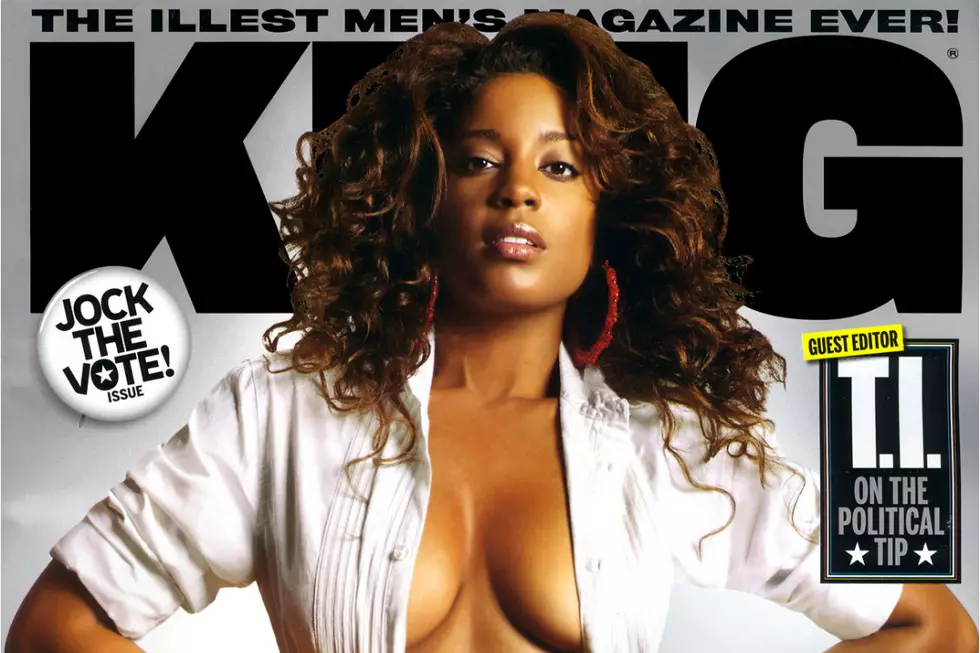Legacy Q&A: Spike Lee
![]() Spike Lee has little time for small talk. Actually, it's more like zero time. On this Monday afternoon in Manhattan's Soundtrack Film & Television editing room—his workplace since 2004's She Hate Me—the iconic filmmaker is focused on the task at hand: a lengthy discussion on his accomplished and controversial career. Every second counts as he's editing his latest project, the World War II epic Miracle at St. Anna, due in theaters this September.
Spike Lee has little time for small talk. Actually, it's more like zero time. On this Monday afternoon in Manhattan's Soundtrack Film & Television editing room—his workplace since 2004's She Hate Me—the iconic filmmaker is focused on the task at hand: a lengthy discussion on his accomplished and controversial career. Every second counts as he's editing his latest project, the World War II epic Miracle at St. Anna, due in theaters this September.
Though the 51-year-old Lee is dependably media friendly, I've been debating two possible icebreakers all morning: "How about the Knicks signing Chris Duhon?†or "Did you have a good Fourth of July?†I opt for the latter. His response: "Yeah, it was nice. I'm ready when you are.†Should've gone with Duhon.
Throughout our 75-minute interview, Spike is full of candid insight. He's especially outspoken about Miracle at St. Anna, a violent, emotional, slightly supernatural tale of four buffalo soldiers—members of an all-black division of the United States Army—that is unlike anything Lee has directed. It's a stellar addition to an already superior catalog that features Do the Right Thing (1989), Malcolm X (1992) and Inside Man (2006). Also on his mind today are past beefs, the Academy Awards' West Coast bias, a missed opportunity with Hollywood's biggest movie star and how Alicia Keys must never check e-mails. What else could it be but a Spike Lee joint?
By Matt Barone
 Miracle at St. Anna was largely shot in Italy and centers around relations between Italians and African Americans, a familiar issue in your films. Why such strong interest?
Miracle at St. Anna was largely shot in Italy and centers around relations between Italians and African Americans, a familiar issue in your films. Why such strong interest?
I love Italy. I've been going there since 1986, when I first did press in Rome for She's Gotta Have It. At the same time, I grew up in an Italian-American neighborhood. My family was the first African-American family to move to Cobble Hill, Brooklyn. At that time, Cobble Hill was predominantly Italian-American, because it's right by the Brooklyn docks and a lot of people working on those docks were Italian-American.
So it's always been conscious rather than subconscious?
Sure. I've got to say, though, with Jungle Fever, a lot of people focused on the interracial relationship thing, but for me, the story I really wanted to tell was the devastation of crack on African-American communities. That's where [Samuel L. Jackson's crackhead character] Gator came in. I think people tend to overlook that aspect of the film.
Miracle at St. Anna deals with the neglected representation of black soldiers in World War II cinema. Has Hollywood intentionally overlooked this?
I've spoken with various African-American scholars, and I've seen letters that they had sent to film productions, detailing the history and the facts and saying how they'd provide help in touching upon the African-American experiences in these wars if they needed it. Unfortunately, though, everybody went in a different direction. So this stuff was omitted.
And at the Cannes Film Festival this past May, you attacked Clint Eastwood for excluding black soldiers in his films.
Well, I'd like to say—not really getting too deep into it, because as far as I'm concerned, it's a closed book—I never tried to attack Clint Eastwood. I said from the very beginning that he's an amazing director. The stuff I said about both of his films [Flags of Our Fathers and Letters from Iwo Jima], other people have said before. I'm not the first one to say anything.
Do you feel as if the media pounces on anything you say in search of controversy?
Absolutely. Sometimes I become a lightning rod, whether I like it or not. And I must admit, some of the controversy I've caused over time was deserved and of my own doing.
You chided Samuel L. Jackson and Quentin Tarantino over the use of the N-word in Tarantino's Jackie Brown. Have you squashed either beef?
Sam and I are cool again, definitely. That was something we discussed, and we're all good now. Tarantino, though, no. I have no reason to speak to him.
You'd prefer to just leave that one be?
Exactly. Simple as that.
In light of his recent legal troubles, Wesley Snipes accompanied you to this year's Academy Awards. Wasn't he originally supposed to be in Miracle at St. Anna?
Yeah, he was cast in the role that Derek Luke plays, but he wasn't allowed out of the country due to his tax situation. He couldn't get a visa, and making St. Anna would've required him to spend extensive time in Italy.
-----------------------------------------------------------------------------------
More From King







